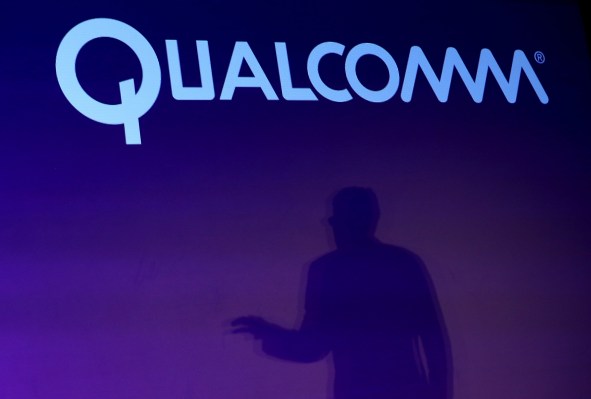Qualcomm’s finances are taking heavy hits over its licensing dispute with Apple and analysts are expressing concern.
Today, the company reported its Q3 earnings and front-and-center were the company’s various legal disputes that are causing its profits and revenues to dive. The earnings report showcased a whopping 40 percent decline in year-over-year profits, with Q3 net income falling from $1.44 billion in 2016 to $866 million. Revenues also fell, dropping 11.1 percent to $5.4 billion. Wall Street had expected much of the bad news, but shares still slid 2 percent after hours.
Responsible for a good deal of the drop was the company’s ongoing dispute with Apple, which surrounds the iPhone-maker’s refusal to pay royalties to Qualcomm on certain technologies that Apple CEO Tim Cook believes “[Qualcomm] had nothing to do with,” and is collecting money on “for no reason.”
In January, Apple sued Qualcomm for $1 billion. The WSJ reported this morning that a number of Taiwan-based contract manufacturers, including Foxconn, had filed a lawsuit against Qualcomm in U.S. federal district court. Earlier this month, Qualcomm sued Apple for patent infringement and is seeking an injunction on iPhones that allegedly infringe on its technologies. To make things worse, another unnamed licensee has also ceased royalty payments to the company.
Much of the question-and-answer period of today’s earnings call involved analysts trying to find out how long the legal disputes with Apple and others would stretch on, or attempting to get answers regarding who the mystery “licensee” was that had stopped making royalty payments.
One particularly testy moment came when an analyst got into a back-and-forth with Qualcomm President Derek Aberle on whether current royalty disputes would lead to more customers stopping payment to Qualcomm:
“Given the escalation here, given everything else that’s been going on, how do we gain conviction that we don’t see further contagion or further spreading to other customers given that this seems to be bleeding out?” Stacy Rasgon, a senior analyst at Bernstein Research, asked.
“On the question of contagion, we’re working really hard to stabilize the regulatory environment and that remains a priority for us,” said Aberle. “Apple is focused on their agreement… and we’re going to focus on getting those things resolved and I don’t think, as we sit here, that we have any indication that this is going to result in a bunch of other licensees deciding not to report payroll.”
“But you never have any indication, do you?” the analyst interjected.
“You never know what you never know, but I’d say historically, you know, if you look at it historically, we haven’t had that problem,” said Aberle. “As we’ve had disputes we’ve been able to resolve them without other licensees just deciding that they’re not going to comply with their agreements. I think that’s the best that we can tell you at this point.”
“But that’s exactly what’s happening right now isn’t it?”
